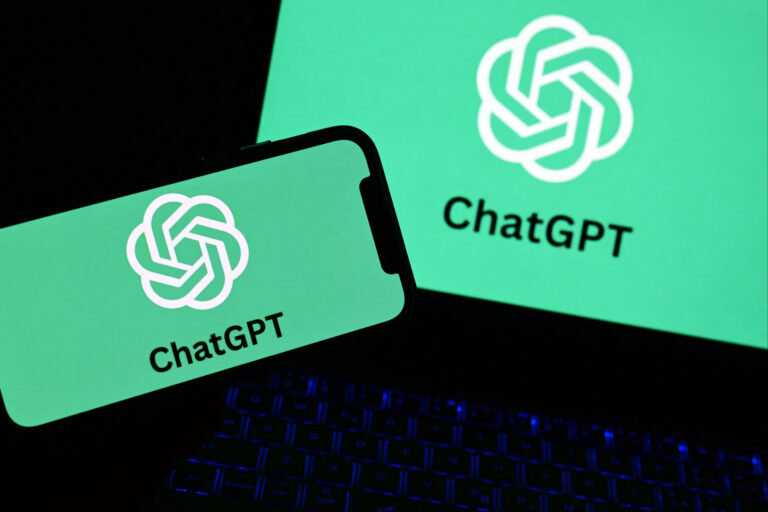
With the rise of artificial intelligence, platforms like ChatGPT and Google Gemini have become mainstream use, especially for students.
Despite ongoing debate on the ethical usage of AI, it cannot be denied that it’s here to stay. Students everywhere are looking for the best ChatGPT prompts that they can use, whether it’s for their classes, assignments, or even day-to-day life.
Even the International Baccalaureate (IB) organisation — which runs programmes similar to GCSEs and A Levels — is allowing students to quote content generated by ChatGPT, as long as it’s credited correctly in the text.
But what most students don’t realise is that they barely tap into the full potential of these AI platforms. It’s so much more than just generating codes or solving math problems – these platforms are highly advanced text modules that will help you get through school and university if used correctly
So there’s no time better than the present to get creative with your ChatGPT prompts. Stop asking it things like “Write me a 1,000-word essay for [insert topic].”
With the right prompts, you could study better, live better and even land your dream career.
But of course, with any use of AI, comes a massive disclaimer.

It’s hard to take AI seriously when it tells you jumping off the Golden Gate Bridge is a remedy for depression. Source: AFP
AI is not the word of God
Some people have gotten way too comfortable using AI as their bible. They’ve started using ChatGPT and Gemini as their new Google, when Google has been there since day one.
This X user attempted to use ChatGPT to handle a cat which had just given birth, saying that the AI told them the mother cat “doesn’t need much help.” On the contrary, the mother cat would have needed to visit the vet for a checkup within 24 hours of giving birth.
Of course, other users roasted the original poster so badly that even X had to put a note on the status saying, “ChatGPT should not be used as a source, especially for medical information.”
But we get it — sometimes you just want to find something quickly without going through ads, sponsored pages, long-form articles, or clicking through several Reddit posts for a specific situation.
However, AI tools like Gemini have recently been producing outlandish information. One incident involved telling users to mix chlorine bleach and white vinegar to clean washing machines, which would have produced a harmful chlorine gas.
Another told users that UC Berkeley geologists encouraged people to eat one small rock per day as rocks as a vital source of minerals and vitamins.
A screenshot also circulated on social media showing Gemini’s remedy for depression being jumping off the Golden Gate Bridge, citing a Reddit user. Thankfully, Lara Levin, a spokeswoman for Google, said that the image was doctored and that the company’s systems never returned that result.
While Google has made hasty efforts to fix Gemini’s output, these incidents are already part of history and will remain in the Internet’s archives for years to come.
I couldn’t believe it before I tried it. Google needs to fix this asap.. pic.twitter.com/r3FyOfxiTK
— Kris Kashtanova (@icreatelife) May 23, 2024
Will accurate information eventually be produced on AI platforms? Possibly in the years to come. After all, the AI field is rapidly evolving, and advancements will only continue. But for now, what exactly can we do with the AI platforms we currently have, and what are the best practices to follow?
The key? Treat them like bad interns. Always double-check the facts, do your research, and compare information to see if it’s legitimate. Never, ever copy-paste directly – a well-trained eye can tell if something was written by AI, and platforms like Turnitin can detect AI-generated content as well.
And, of course, never use it for official papers or exams, especially if you’re a student.
International students risk losing their student visa with unethical and incorrect use of ChatGPT.
Now that you’ve been warned and know how important it is to use AI wisely, here are some of the best ChatGPT prompts to help you with life and school:

ChatGPT could tell you to visit the snow-capped mountains above Lake Hawea, New Zealand. Source: AFP
The best ChatGPT prompts to help you find the best countries and universities for international students
Stuck on where to study abroad? Ask ChatGPT, and perhaps you’ll get a stroke of inspiration.
Instead of pouring over travel guides, tourist sites, and endless Wikipedia pages, using the correct prompt on ChatGPT will help you narrow your options down based on your requirements.
For example, entering a prompt such as “Which countries are friendly towards international students?” would produce a list of countries, along with additional information about costs, cultural openness, and even post-graduation opportunities.
Here are the countries it produced – Canada, Australia, Germany, New Zealand, Netherlands, United Kingdom, and Sweden.
A quick fact check will indeed list these countries as some of the most hospitable for international students, according to reputable site US News & World Report.
You can narrow your search down even further, depending on your personal needs. For example, you could base your search on your budget, culinary interests, or career aspirations.
Try this out: follow up on the previous prompt with “Out of the countries listed above, which are the cheapest academic options for international students?”
The result would be Germany, Sweden, the Netherlands, and New Zealand. ChatGPT will also explain that these countries offer lower tuition fees, many scholarships, and moderate living costs.
You could also narrow down your research even more by asking something like, “How much should I budget as an international student in Germany?” The result is a breakdown of several areas, such as accommodation, food, health, transport, even utilities and leisure activities, coming to a total of 850 euros (US$925) to 1,500 euros (US$1,630).
While you will most certainly still have to work out your own budget to study internationally, ChatGPT is able to give you a rough idea of where to start. You should then follow up with your own research or even reach out to fellow international students in Germany via platforms like Reddit to ask questions.
Always remember to follow up with your own research and never rely fully on AI — at least, not yet.
This practice extends to your academic experience as well.

Think of ChatGPT as a horse. It can only perform well if led around correctly. Source: AFP
The best ChatGPT prompts to help you study better
Enough of the “explain [topic] to me” or “write 3 paragraphs on [topic]” prompts. Start by learning smarter.
Find reputable sources for research
While you cannot cite ChatGPT, you can request the platform to provide sources or recommend journals. You must still perform follow-up research – the platform has been known to make things up when it’s unable to pull data from a reliable source.
Some journals or sources may also be locked behind paywalls or portals that require a login, so you may not always be getting the best information. ChatGPT may also link to older web pages – even to those that don’t exist anymore – so check, check, check.
Avoid asking:
- Write an essay on [topic] and add citations.
- Provide a source for your answers on [topic].
- Give me sources published within the last five years.
Prompts to use:
- Cite your sources for this information with website links.
- Provide me with reputable sources to support my argument on [topic].
- Include sources published between 2019 to 2021.

Of course, using ChatGPT to summarise a physical book is hard unless there is a digital copy of it available. Source: AFP
Summarise complex information
When it comes to understanding something new or learning about unfamiliar concepts, it can be difficult, especially if it involves jargon. But asking AI platforms like ChatGPT or ELI5 (Explain It Like I’m Five) can help you break down complex information, especially if it’s in a massive chunk of text.
Hint: you can also ask ChatGPT to create handy memorisation techniques for you to remember complex information easily.
Avoid using:
- Simplify this.
- Make this sound easier.
- Dumb it down for me.
Prompts to use:
- Summarise this in an easy-to-understand way. [insert topic or paragraph]
- Break down [topic] for me and use real-life examples to make it more relatable.
- What are the most important facts/dates/formulas related to [topic]?

It’s essential to have good time management skills as a student, and ChatGPT can help with that. Source: AFP
Creating a study plan
When you’re in university, you will benefit greatly from a study plan. It will develop better time management skills and build discipline in many areas of your life. But if you’re struggling with creating one in the first place, ChatGPT will come in handy. Get it to produce a comprehensive study plan for you, and make adjustments as you see fit.
Avoid using:
- Make me a timetable.
- Give me a daily study plan.
Prompts to use:
- I need help creating a study plan for university. I’m taking four subjects this semester, [list subjects]. Create a weekday study plan for me from 3 p.m. to 8 p.m., including breaks.
- I’m taking [list subjects] for university, which lasts until 12 p.m. every day. I also work a part-time job from 2 p.m. to 6 p.m. on Tuesdays and Thursdays. Provide a study plan that will fit my schedule between those hours.
- Create a schedule to help me prepare for my exams on [date], including weekdays up to 2 a.m. Consider my class hours and part-time job when creating the schedule.

Of course, ChatGPT certainly can’t tell you the minute differences between tangible objects. Source: AFP
Finding differences
X versus Y topics are popular in academic essays, or you may be asked to do a class debate regarding a certain topic. In times like this, you’ll be required to further understand the similarities and differences between multiple concepts, which can get complicated. That’s where ChatGPT comes in.
Avoid using:
- What is the difference between [topic X] and [topic Y]?
- Explain how [topic X] and [topic Y] are different yet similar.
- Define [topic X] and [topic Y], and why are they different?
Prompts to use:
- Compare and contrast [topic X] and [topic Y]. Help me better understand their similarities and differences, and use examples to further illustrate.
- I have to write about [topic X] and [topic Y] and how they are different. Explain thoroughly what they are, and emphasise their similarities and differences in a comprehensive manner.
- Provide real-life examples of how [topic X] and [topic Y] are different.











